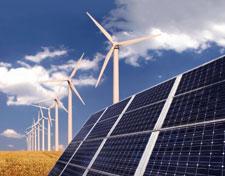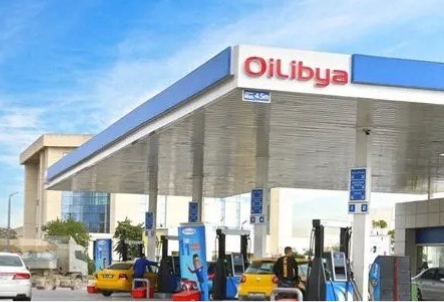
OpeOluwani Akintayo
12 October 2018, Sweetcrude, Lagos — The Organization of the Petroleum Exporting Countries, OPEC, has said that even in the most optimistic of outlooks so far seen for renewable energy sources, there is no prediction of their coming close to surpassing oil and gas as the major energy source in the decades ahead.
This is at variance with recent reports that demand for renewables would surpass those for oil and gas latest 2040.
“Oil will remain a fuel of choice for the foreseeable future”, Secretary General of the Organization of the Petroleum Exporting Countries, OPEC, Dr. Mohammed Barkindo, said in his keynote speech at the Oil and Money Conference in London on Thursday.
The OPEC chief has more than ever been upfront, making cases for higher demand for oil and gas despite several forecasts that demand for renewable energies will take over those of oil and gas.
According to him, OPEC sees oil demand increasing by around 14.5 million barrels a day (mb/d) between now and 2040, to reach close to 112 mb/d.
There are a number of voices who see oil demand being significantly impacted by the electrification of the road transportation sector.
Barkindo said there is no doubt that electric vehicles are making inroad into the sector, but says “not to the extent that some would have us believe”.
This, he said, is clear in the numbers: “Electric vehicles made up well below 1% of the total vehicle fleet in 2017. While their expansion is impressive in the years ahead, reaching a level of around 13% in 2040, supported by falling battery costs and policy support, it is conventional vehicles, including hybrids, that are still expected to make up 82% of the vehicle fleet by 2040”, he said.
According to him, there should are possibilities to improve the efficiencies of conventional engines and the fuels they use.
In fact, he argued that fuel efficiency improvements are expected to result in a far greater reduction in oil demand, than the increasing penetration of alternative fuel vehicles in the period to 2040.
“The clear message is that conventional vehicles will remain the mainstay of the road transportation sector”.
“Given our Outlook, as well as many others carrying similar forecasts, it is also important to broach the issues of policies and technologies,” he said.
In this regard, Barkindo stated that there was need to continually look to develop, evolve and adopt cleaner energy technologies, as well as all-inclusive and non-discriminatory energy policies, that would enable the world to meet expected future energy demand, in a sustainable and ever more efficient manner.
Renewables are evidently coming of age, with wind and solar, expanding fast, and others such as hydropower and biomass, maintaining their shares in the energy mix in the run up to 2040.
However, even by 2040, they are estimated to make up only around 19% of the global energy mix.
“Let me stress that many OPEC member countries have great sources of solar and wind, and significant investments are being made in these fields.
“With the share for nuclear expected to be at just over 6% by 2040, it means that the world will need to look elsewhere for around three-quarters of its energy needs by 2040”, he argued.
He added: “In terms of oil and gas, there is no doubt that they will remain central to supplying an expanding global population with the critical energy it needs”.
“In our (OPEC) outlook, oil has an expected share of around 28% in the global energy mix, and gas is at 25%, by 2040”.



